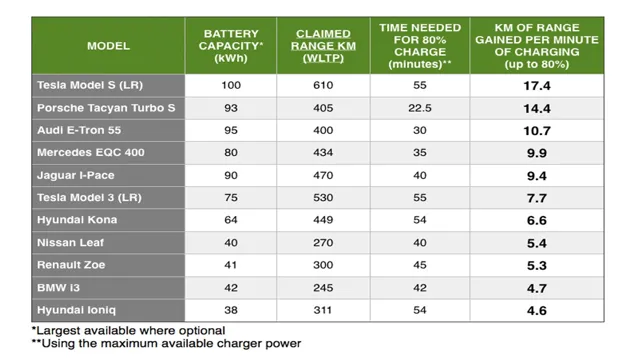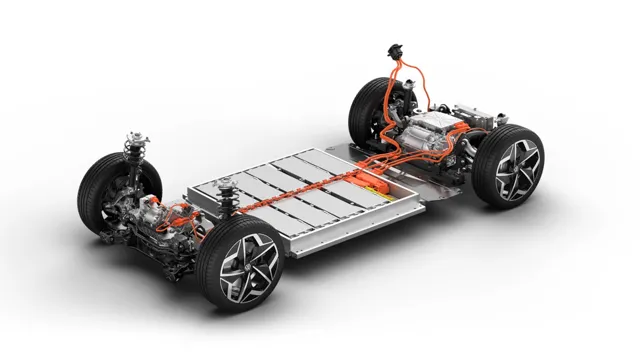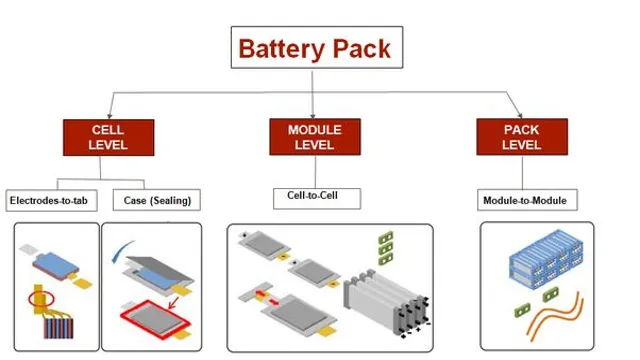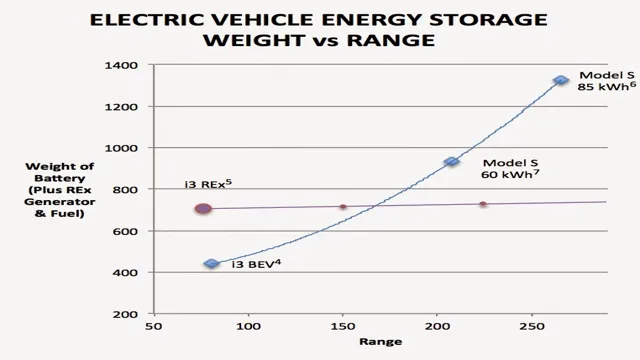Revving Up Your Knowledge: The Ultimate Guide to Electric Car Battery Capacity Range
Electric car battery capacity and range have become crucial factors for consumers in their car purchase decisions. With the rise of electric cars as a sustainable form of transportation, people are considering the mileage and battery capacity as key features when choosing a car. Electric cars have been gaining popularity due to their eco-friendly nature and minimal carbon footprint.
One of the main concerns for prospective buyers is the range of the electric car battery and its efficiency. The more miles a car can travel on a single charge, the better the value of the car. Battery technology is improving and cars can now travel longer distances with better efficiency.
However, the range of electric cars still varies depending on the battery capacity and other factors such as driving habits, temperature, and terrain. It is essential to understand how battery capacity and range affect car performance before making a purchase decision. In this blog post, we will dive deeper into the world of electric car batteries and explore how battery capacity affects the range of electric cars.
We will also discuss factors that contribute to the range and how consumers can get the best value for their purchase. So, whether you are a first-time electric car buyer or a seasoned electric car owner, keep reading to find out more about electric car battery capacity range.
What Is Battery Capacity?
Electric car battery capacity is an important factor to consider when purchasing an electric vehicle. Battery capacity refers to the amount of energy that the battery can store and deliver to power the car’s electric motor. The range of an electric vehicle is largely determined by its battery capacity, and a higher battery capacity means that you can travel further before needing to recharge.
For instance, if you have an electric car with a 100 kWh battery, you can expect to travel approximately 250-300 miles on a full charge, while a car with a 60 kWh battery might only be able to travel 150-200 miles. It’s important to note that your range can also be affected by other factors, such as your driving habits and the temperature outside. Regardless, having a reliable electric car battery capacity range is essential for long journeys that require more frequent charging periods.
When considering purchasing an electric vehicle, take into account the battery capacity range to ensure that you have a smooth driving experience.
Definition of Battery Capacity
Battery capacity refers to the amount of electrical energy that a battery can store and deliver. It is typically measured in ampere-hours (Ah) or milliampere-hours (mAh). In simpler terms, battery capacity is the “fuel tank” of a battery that determines how long it can power a device.
For instance, a smartphone with a 3,000mAh battery has the capacity to provide 3,000 milliamperes of current for one hour or 1,500 milliamperes of current for two hours, and so on. The higher the battery capacity, the longer it can last without needing a recharge. However, high capacity batteries often translate to longer charging times and also cost more.
Therefore, it is essential to find the right balance between battery capacity and other factors when choosing a battery for a particular device.
Types of Electric Car Batteries
Battery Capacity When it comes to electric car batteries, one of the most important factors to consider is its capacity. Battery capacity refers to the amount of energy that a battery can store and provide to power an electric car. Essentially, the higher the battery capacity, the longer a car can travel before needing to recharge.
Battery capacity is measured in kilowatt-hours or kWh, and can range from around 20 kWh in smaller electric cars to over 100 kWh in larger, high-end electric vehicles. It’s important to consider your driving habits and needs when selecting an electric car with a specific battery capacity. If you frequently travel long distances, a car with a higher battery capacity may be more suitable for you.
However, if you mainly use your car for shorter trips, a lower battery capacity may suffice. Keep in mind that with the advancement of charging infrastructure, even a vehicle with a lower battery capacity can still be practical for longer trips as recharge times continue to decrease.
What Is Electric Car Battery Range?
If you’re considering buying an electric car, you may be wondering what electric car battery range means. In simple terms, electric car battery range refers to the maximum distance an electric vehicle can travel on a single charge. Range anxiety is one of the biggest concerns that potential electric car owners have, mainly due to electric cars’ limited range compared to traditional gasoline vehicles.
However, with advances in technology, electric car battery capacity range has improved significantly in recent years, making it possible for electric vehicles to travel up to 400 miles on a single charge. It’s important to note that electric car battery range depends on various factors, such as driving habits, temperature, and battery age, which can affect the overall range of the vehicle. Therefore, drivers need to consider their daily driving needs and charging availability when choosing an electric car model to ensure they can maximise the benefits of an electric vehicle’s range.
Definition of Electric Car Battery Range
Electric car battery range refers to how far an electric car can travel on a single charge. In simple terms, it’s the total distance the vehicle can cover before its battery runs out of power. The range of electric car batteries varies widely, depending on the make and model of the car, as well as other factors such as driving conditions, terrain, and weather.
Some electric cars can travel up to 400 miles on a single charge, while others have a limited range of less than 100 miles. The battery range is one of the primary concerns for potential electric car buyers, as it determines the vehicle’s overall suitability for daily use and long-distance travel. However, advancements in electric vehicle technology and infrastructure are rapidly increasing the range and making them more accessible to the masses.
Factors that Affect Electric Car Battery Range
Electric car battery range refers to the total distance an electric vehicle can travel on a single charge. This range is crucial when it comes to the decision-making process of purchasing an electric car. The factors that affect the battery range include the size of the battery, the temperature, the speed of the vehicle, and the driving style.
The bigger the battery, the more range you’ll get. Temperature is a major factor since extreme heat or cold can affect the battery’s efficiency. Driving at high speeds puts extra strain on the battery, reducing its range.
Also, aggressive acceleration and frequent hard stops can reduce the range. Therefore, a gentle driving style maximizes the battery range. It’s essential to consider these factors when purchasing an electric car to ensure that you’ll get the desired range out of your vehicle.
In conclusion, electric car battery range depends on several factors, and careful consideration of these factors will ensure maximum efficiency and a better driving experience.
Typical Electric Car Battery Range
Electric car battery range refers to the distance an electric car can travel on a single charge before the battery needs to be recharged. This range is influenced by various factors such as the size and capacity of the battery, driving habits, terrain, and weather conditions. The typical electric car battery range is around 100-250 miles, with newer models boasting ranges of up to 400 miles.
It’s essential to consider your daily driving distance and charging options before purchasing an electric car because range anxiety can be a deterrent for some. Suppose you frequently travel long distances or live in an area without sufficient charging infrastructure. In that case, a hybrid car or a gas-powered vehicle may be a better option for you.
However, as the electric car market continues to grow and charging infrastructure becomes more accessible, the electric car battery range is expected to increase, making electric vehicles even more practical and convenient.
Electric Car Battery Capacity
Electric car battery capacity range is an important aspect to consider when purchasing an electric vehicle. The capacity of the battery determines the amount of energy it can store, which ultimately impacts the vehicle’s range. The larger the battery capacity, the longer the range of the vehicle.
However, it’s important to note that other factors such as driving style, weather conditions, and terrain can also affect the range. Additionally, while a larger capacity battery may provide a longer range, it also adds weight to the vehicle, which can impact its efficiency. It’s important to find a balance between battery capacity and range to ensure optimal performance and efficiency.
Manufacturers are continually working to improve battery technology, with some electric vehicles now offering ranges of over 500 miles on a single charge. Overall, electric car battery capacity range is an important consideration for anyone in the market for an electric vehicle.
Battery Capacity Range for Popular Electric Cars
When it comes to electric cars, the battery capacity is a crucial factor that determines the range and performance of the vehicle. Different electric cars come with different battery capacity ranges, and it’s essential to consider this when making a purchase. Popular electric cars like the Tesla Model S, have an impressive battery range of 375 miles, while the Nissan Leaf has a battery range of only 150 miles.
The Chevy Bolt is another popular option, with a battery range of up to 259 miles, making it a great choice for commuters and city drivers alike. The battery capacity range for electric cars continues to improve with each new model, and it’s exciting to see what the future holds for the electric car industry. Whether you’re considering an electric car for its green benefits or its cost savings, it’s essential to look at the battery capacity range to make an informed decision.
How to Maximize Electric Car Battery Capacity
Electric car battery capacity is a key concern for many electric vehicle (EV) owners, as the battery pack is the most expensive component of an EV. In order to maximize electric car battery capacity, there are few things you can do. Firstly, you should make sure you maintain your battery by keeping it at the right temperature and charging it regularly.
You should also avoid letting it run down to very low levels, as this can damage the battery. In addition, you can use regenerative braking to help top up the battery while driving. Another way to maximize battery capacity is to avoid driving aggressively, as this can drain the battery quickly.
If you are planning a long trip, it’s a good idea to plan your route in advance to make sure you can stop and charge the battery when needed. All in all, taking these simple steps can help you get the most out of your electric car’s battery capacity and improve your overall driving experience.
The Future of Electric Car Battery Capacity
Electric cars are becoming increasingly popular as people look to reduce their carbon footprint and running costs. The battery capacity range is one of the most important features of an electric car. A longer range means less need to stop and recharge, making the car more practical for longer trips.
The current average battery capacity range for electric cars is around 250 miles, but this is set to improve significantly in the coming years. With advances in technology, it is expected that we will see electric cars with a battery range of over 300 miles in the near future. In addition, research is ongoing into new battery technology that could significantly increase range and decrease charging time.
This will be a game changer for electric cars, making them even more practical and competitive against traditional internal combustion engines. The future of electric car battery capacity range is looking very bright indeed.
Advancements in Battery Technology
Technology has rapidly developed over recent years, allowing for significant advancements in battery technology. As a result, the future of electric car battery capacity looks promising. With innovative lithium-ion batteries becoming more commonplace in the automotive industry, electric cars are capable of traveling further distances than ever before.
Additionally, solid-state batteries are currently being developed to offer even more benefits, including increased safety, faster charging times, and longer overall lifespan. These advancements in battery technology will not only improve the driving experience for electric car owners but also pave the way for a cleaner, more sustainable future. As we continue to make strides in battery technology, the potential for electric cars to become the primary mode of transportation only increases.
With environmental concerns looming large, the development of more efficient and sustainable batteries is more important than ever.
Impact on Electric Car Industry
The future of electric car battery capacity is looking bright, as research and development continue to push the boundaries of what is possible. With increasing investment and technological advancements, it’s only a matter of time before we see significant improvements in the range and performance of electric vehicles. One of the biggest challenges facing the industry is the cost of battery production, but as more manufacturers enter the market and competition intensifies, prices are expected to fall.
Additionally, as more charging infrastructure is built, the range anxiety that has long plagued electric car drivers will become less of an issue. In the coming years, we can expect to see electric cars become increasingly popular, with a greater range and lower cost making them a more viable option for everyday use. The future of electric car battery capacity is looking brighter than ever before, and we can expect to see a significant impact on the industry in the years to come.
Conclusion
In conclusion, the capacity range of electric car batteries is like a marathon runner’s endurance. Just as a runner needs to maintain their pace and energy throughout the entire race, electric car batteries must have a sufficient capacity range to power the vehicle for the desired distance. So, whether you’re hitting the open road or just running errands around town, the battery capacity range is an essential factor to consider when choosing an electric vehicle.
It’s not about the speed or the flashy exterior, it’s all about the endurance baby!”
FAQs
What is the average range of an electric car battery?
The average range of an electric car battery is around 250-300 miles on a single charge.
How long does it take to charge an electric car battery?
It depends on the charging station and the battery size, but typically it can take anywhere from 30 minutes to 12 hours to fully charge an electric car battery.
Is the capacity of an electric car battery affected by weather conditions?
Yes, extreme hot or cold weather conditions can affect the capacity of an electric car battery and reduce its range.
Can I replace an electric car battery if it loses capacity over time?
Yes, it is possible to replace an electric car battery if it loses capacity over time. However, it can be costly and it is recommended to properly maintain the battery to prolong its lifespan.






